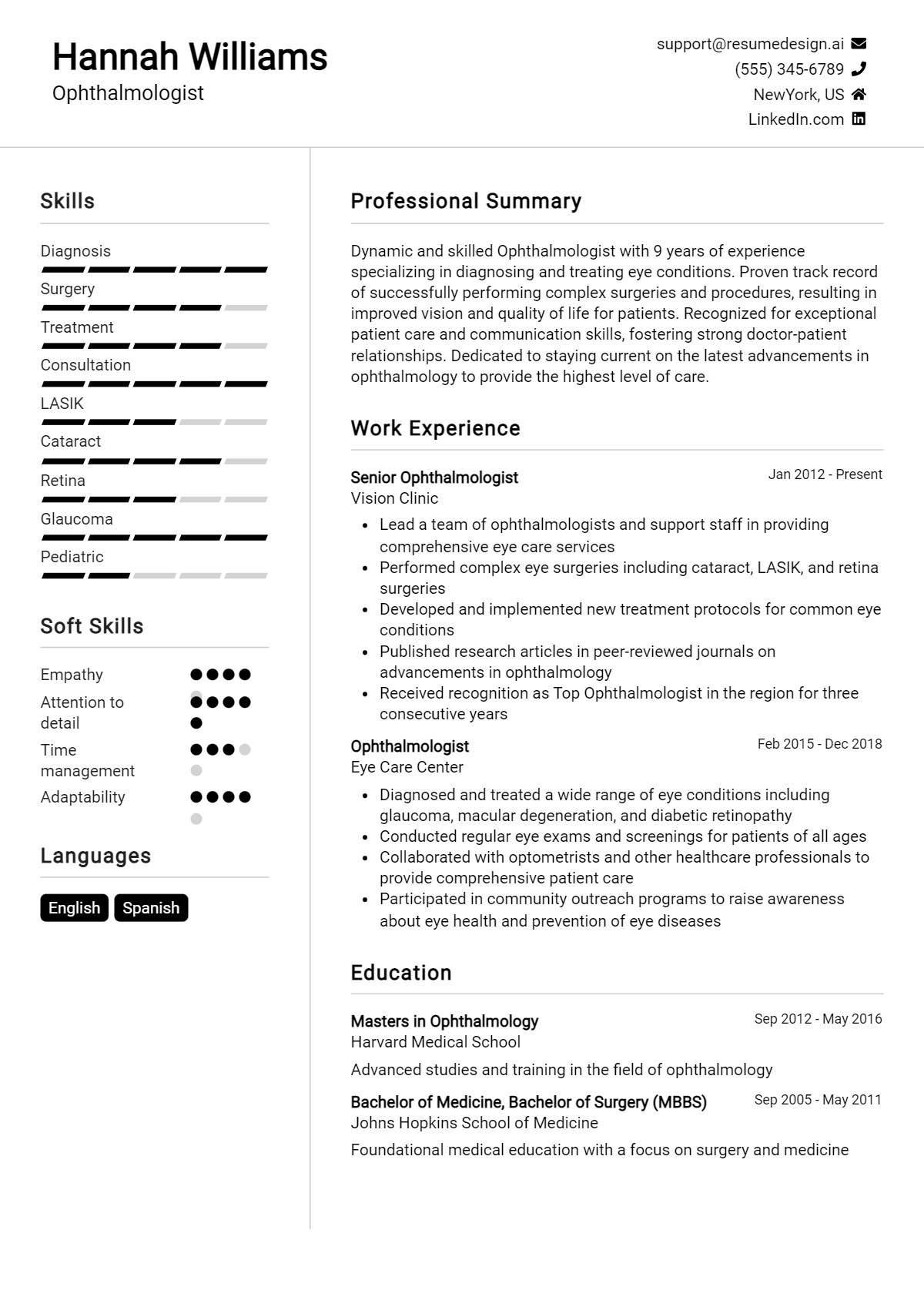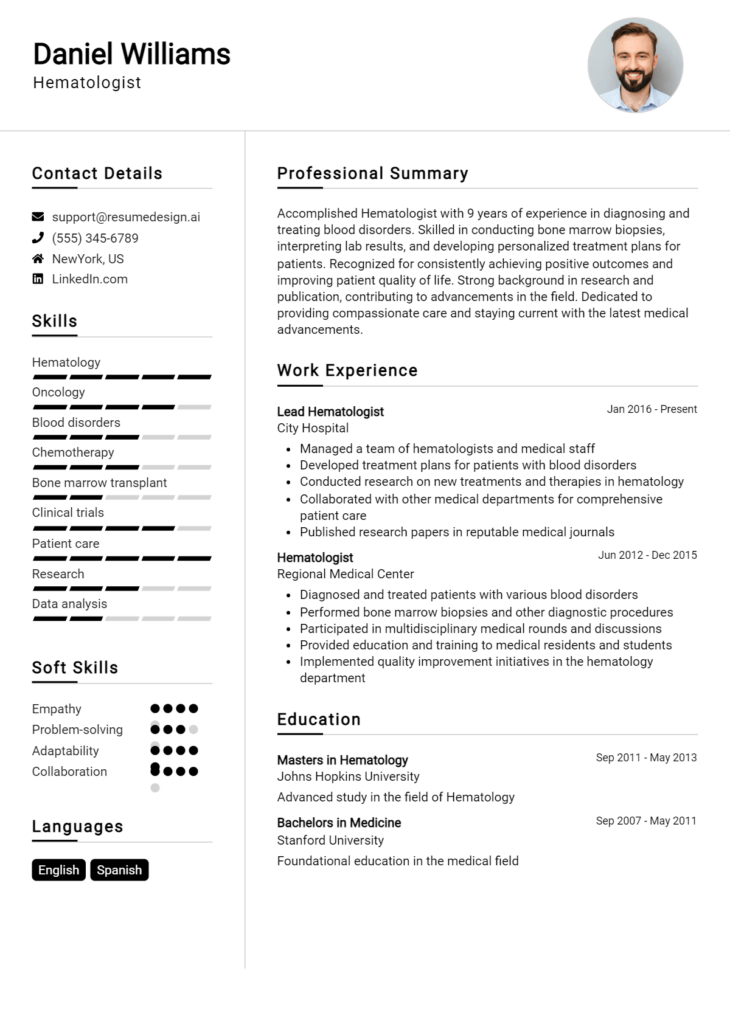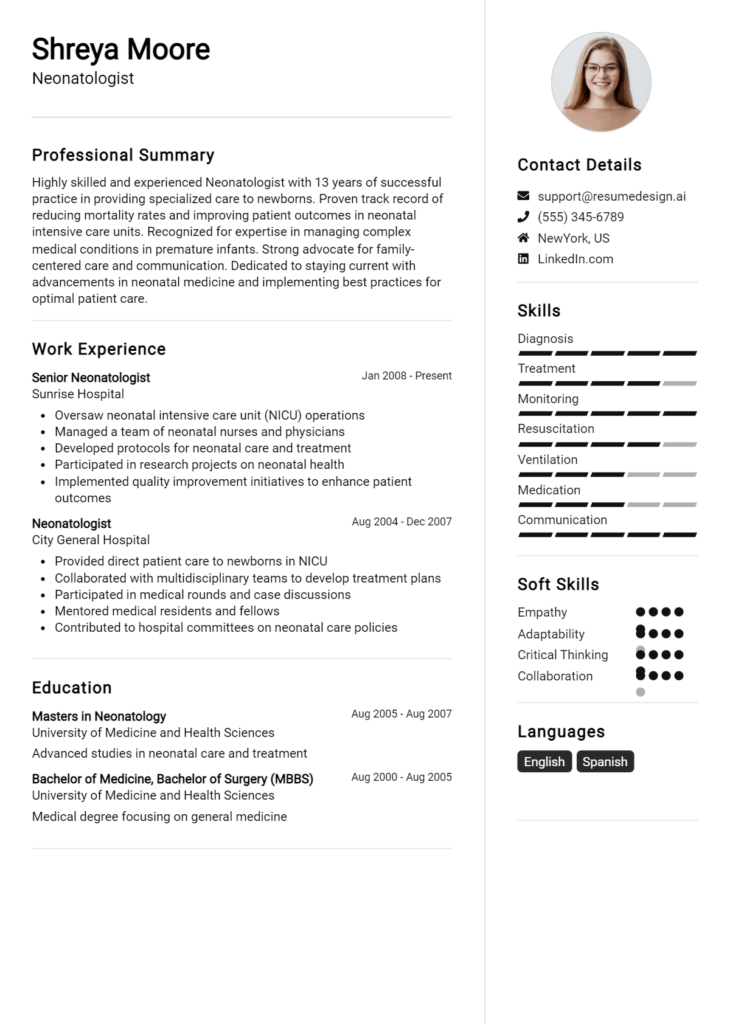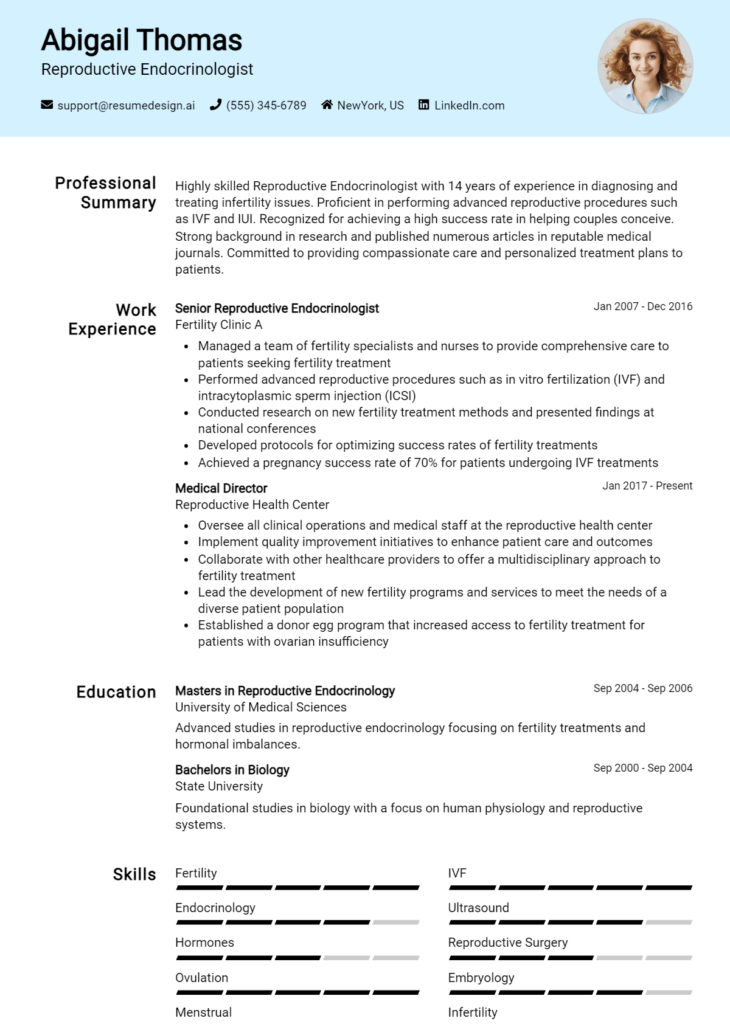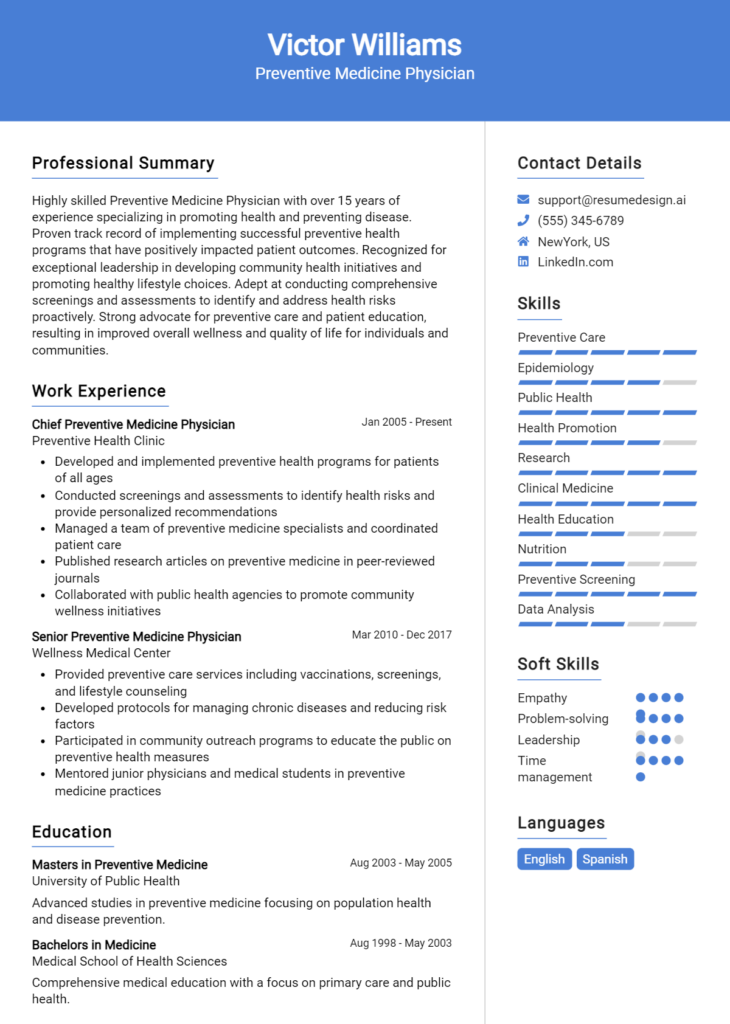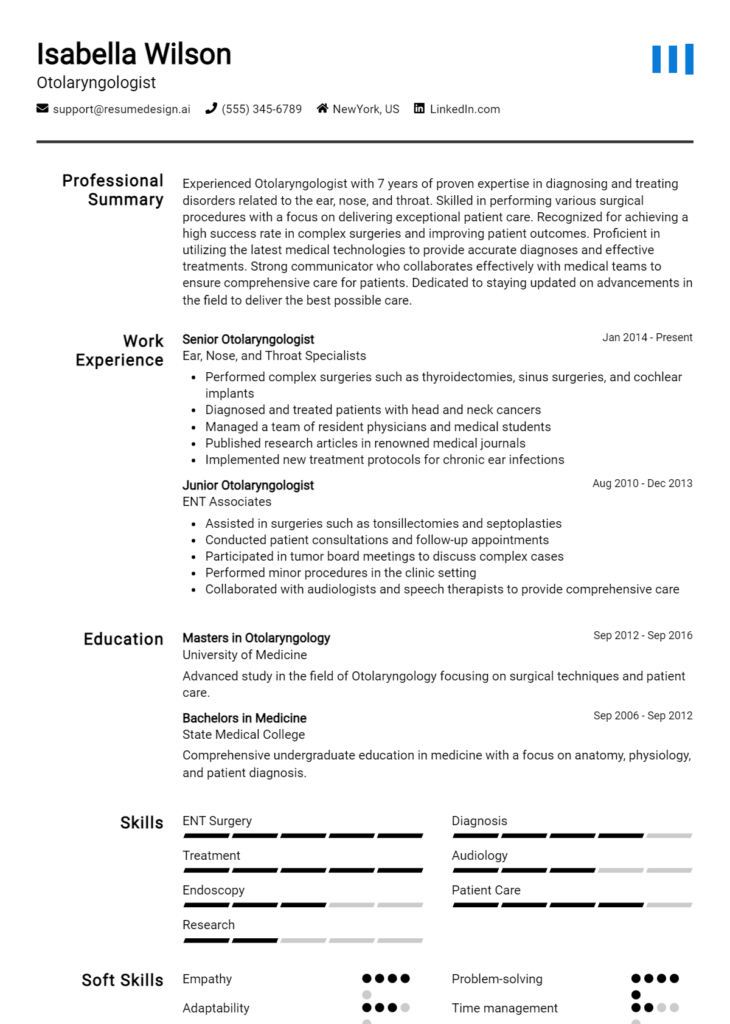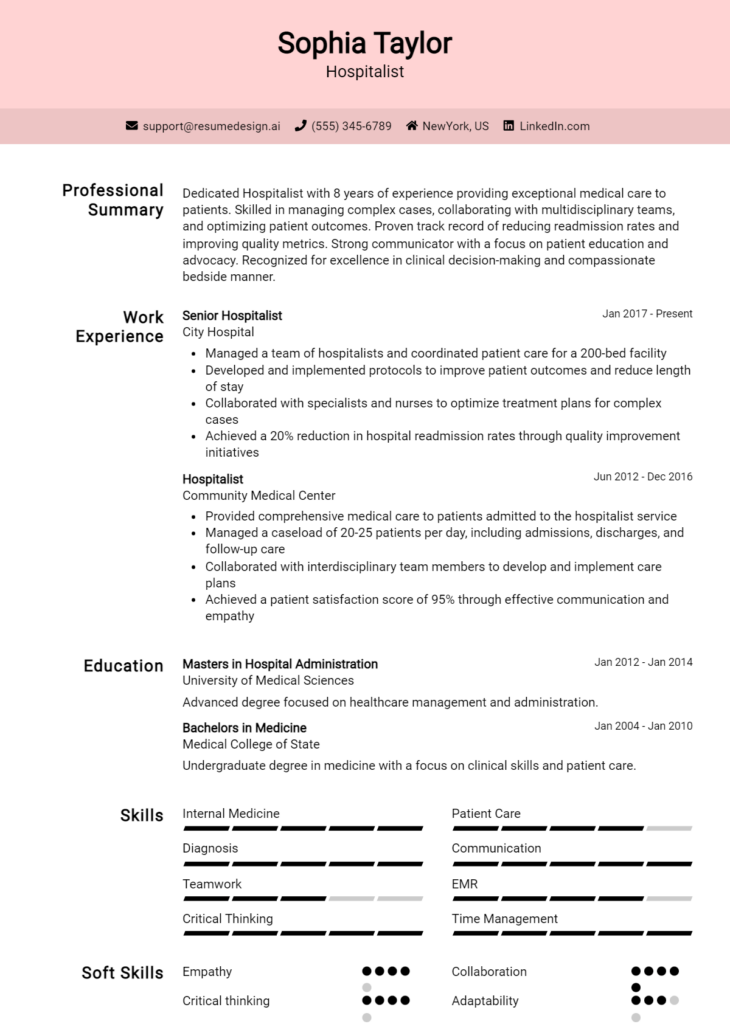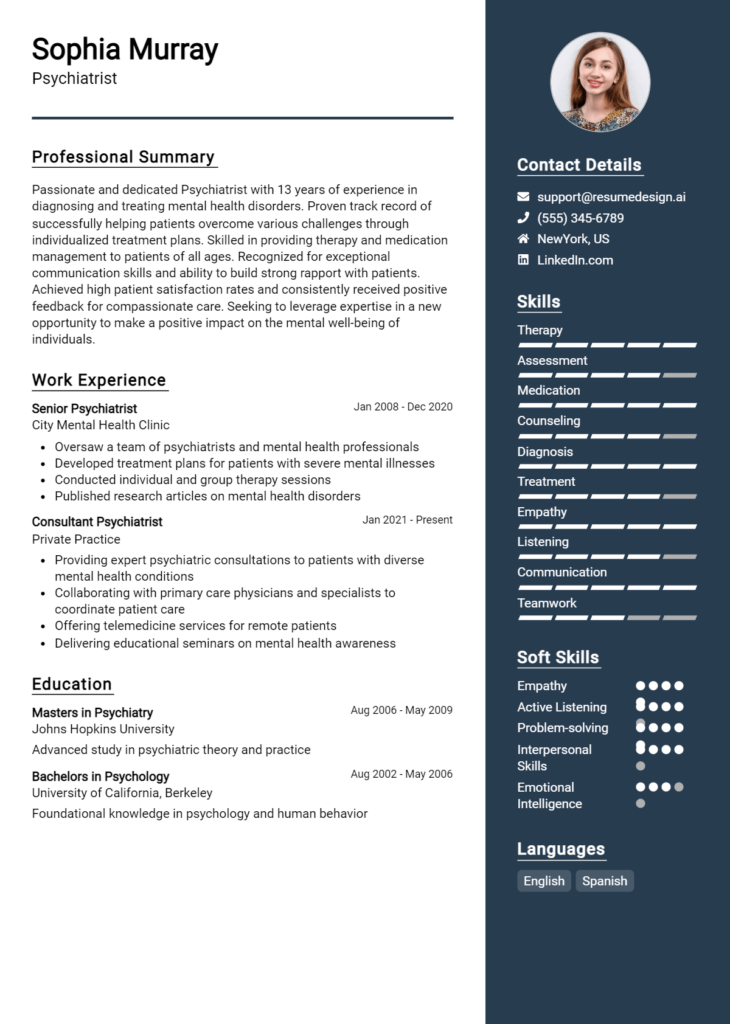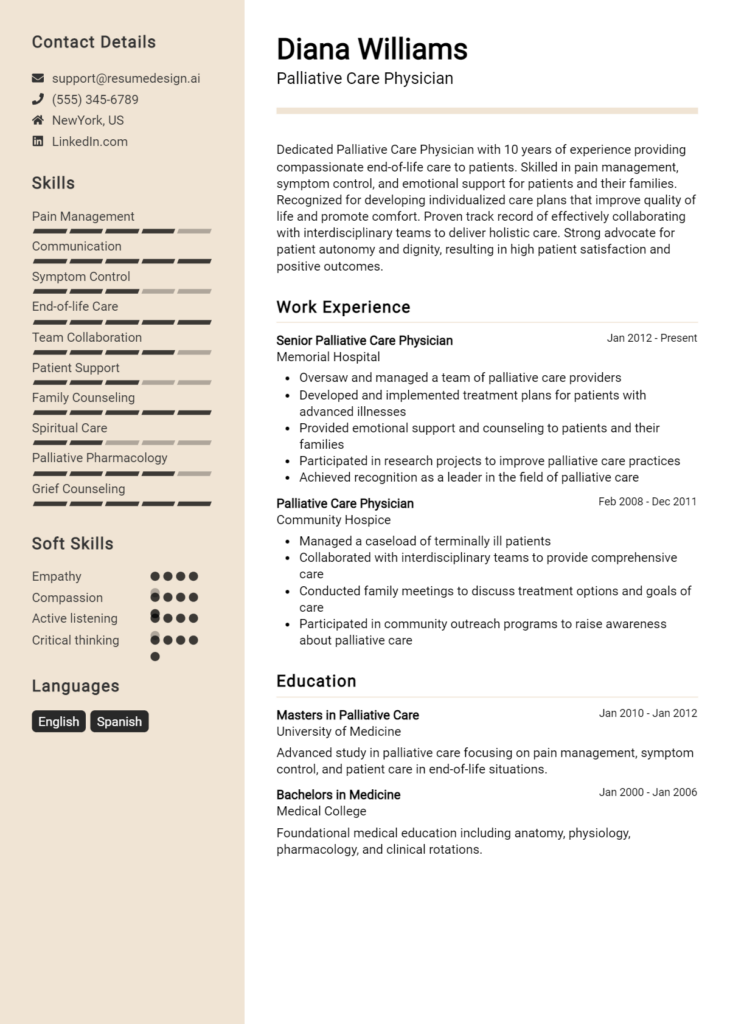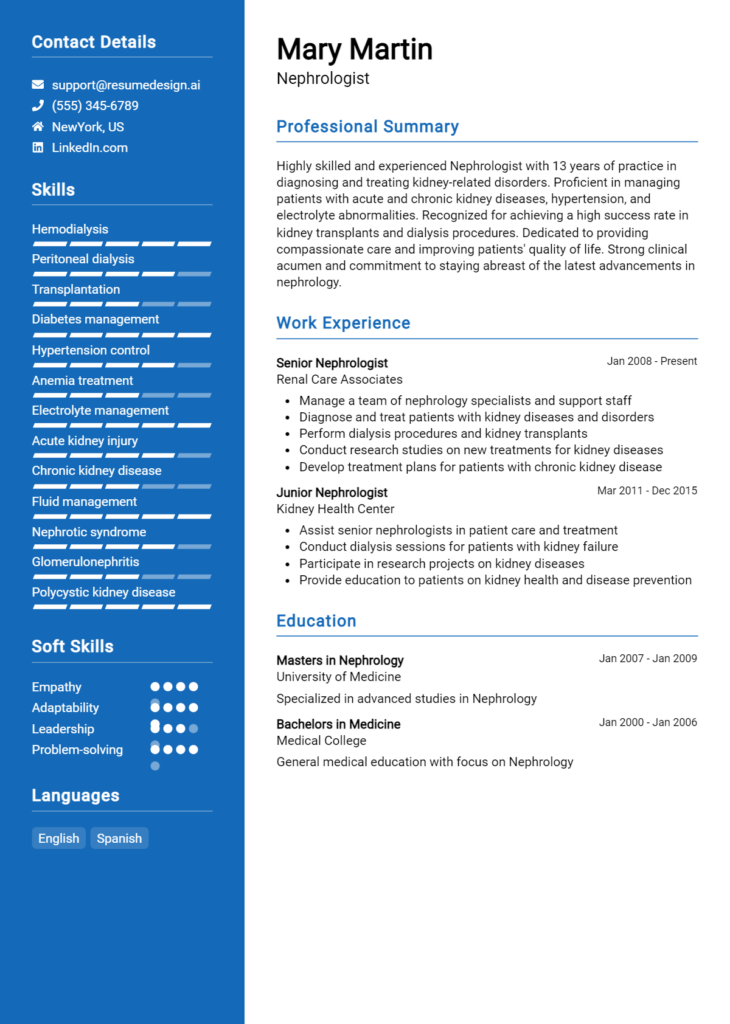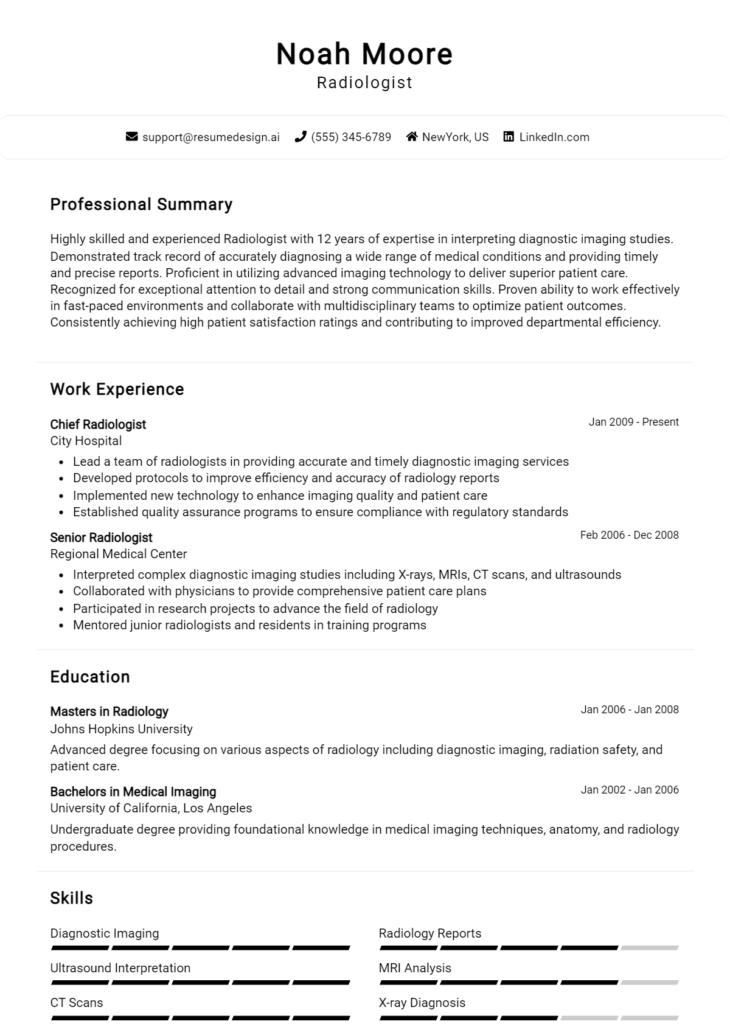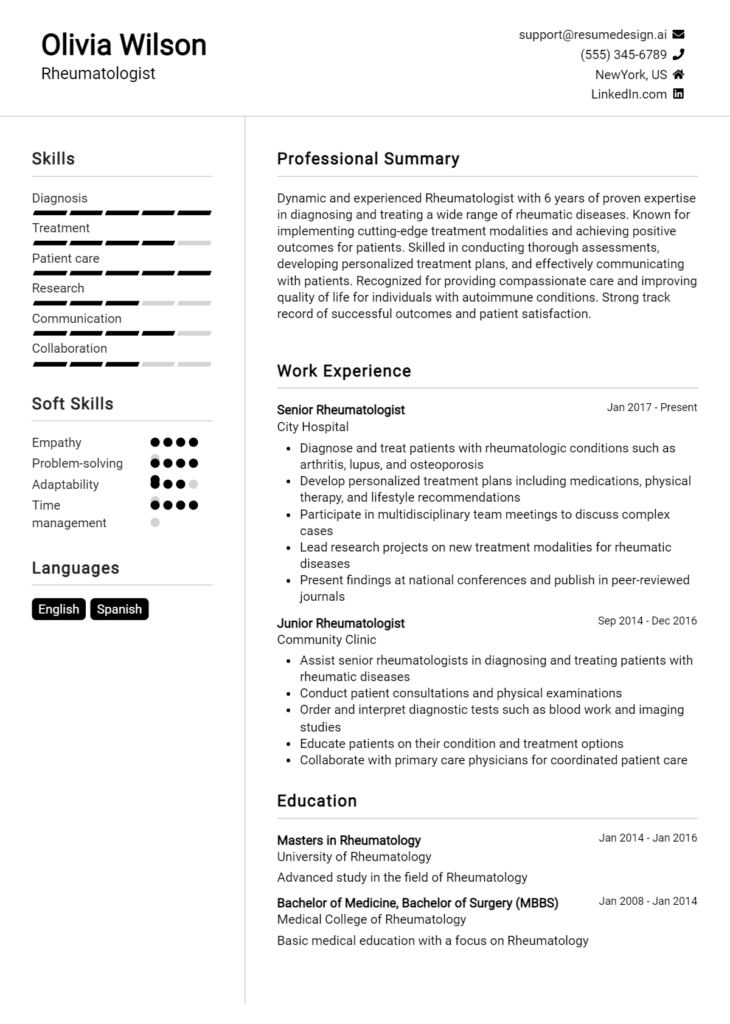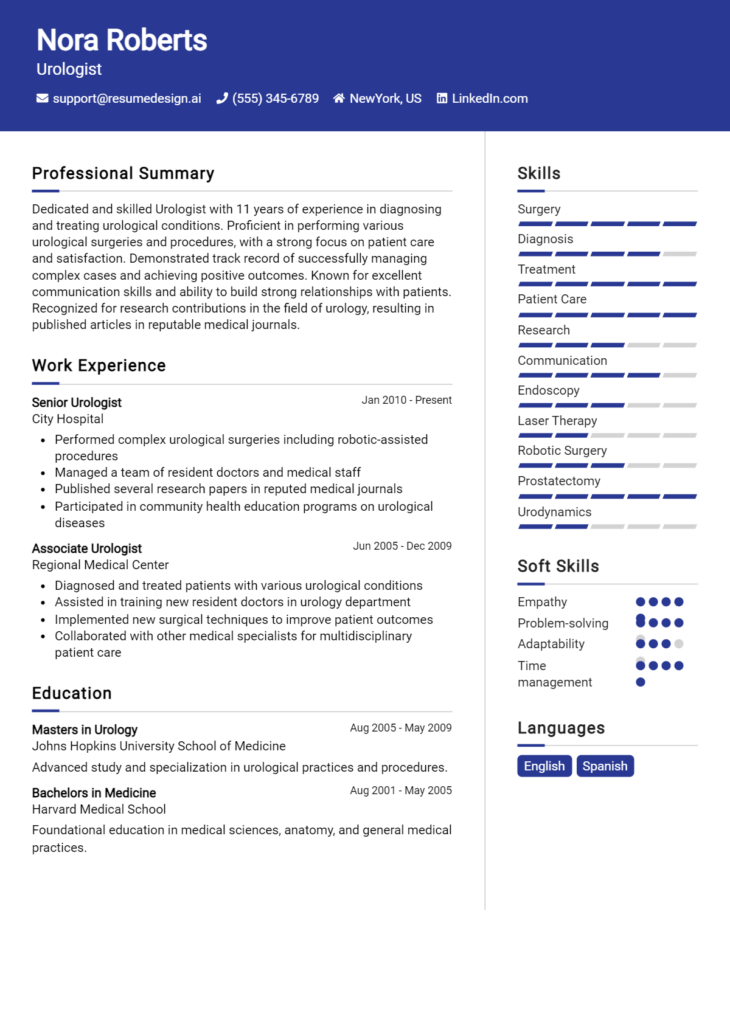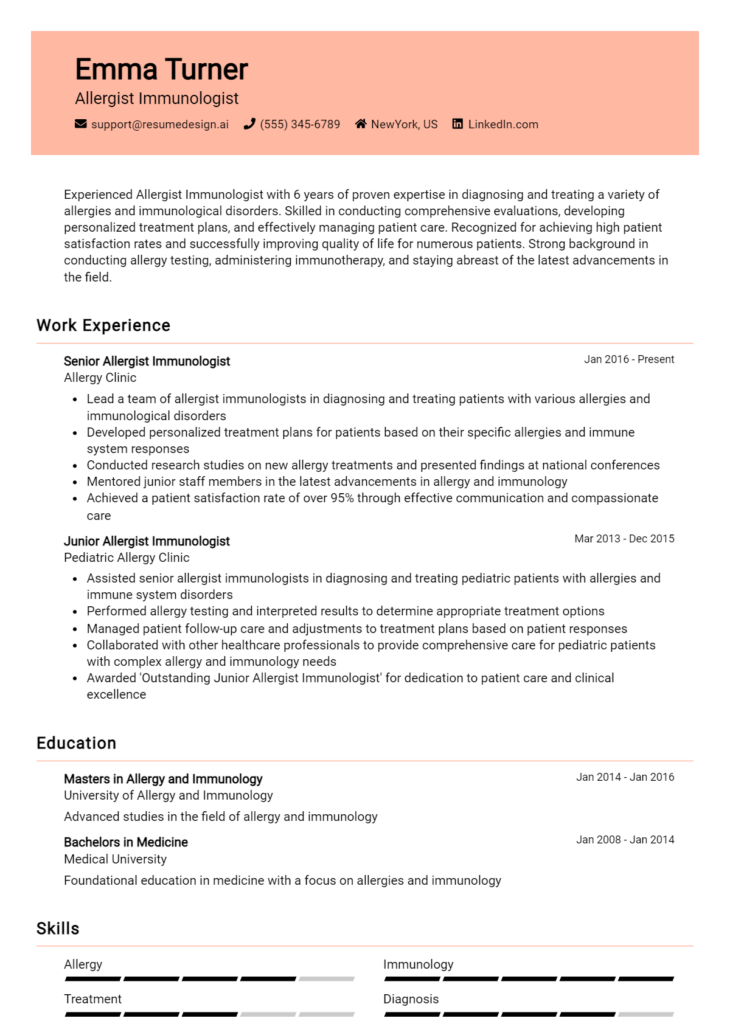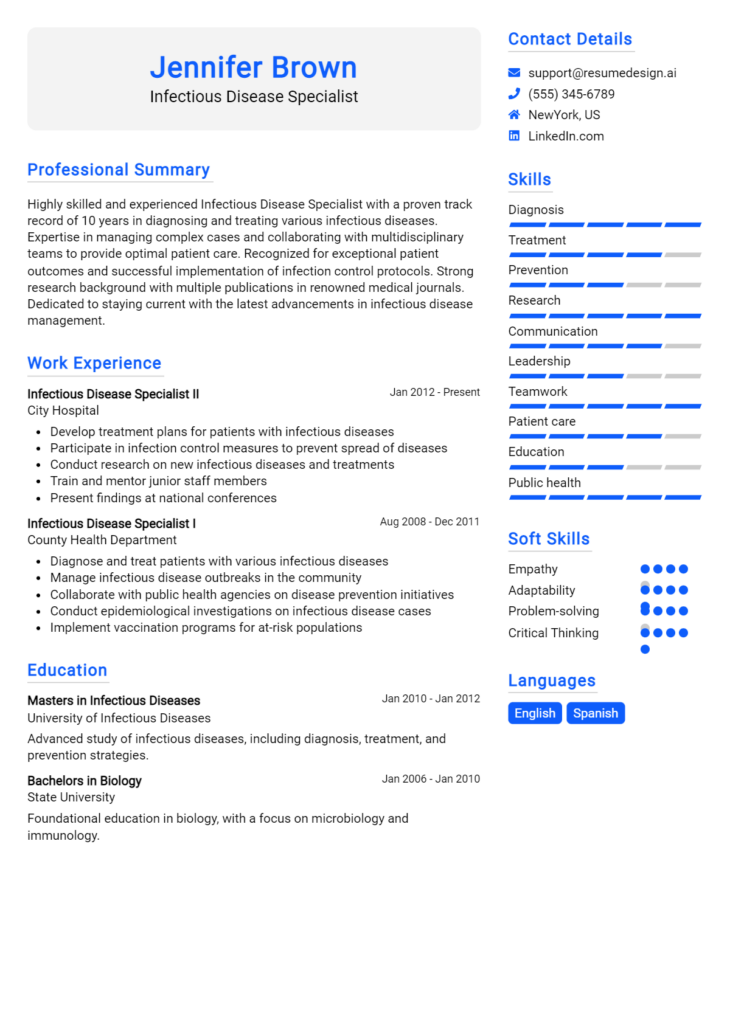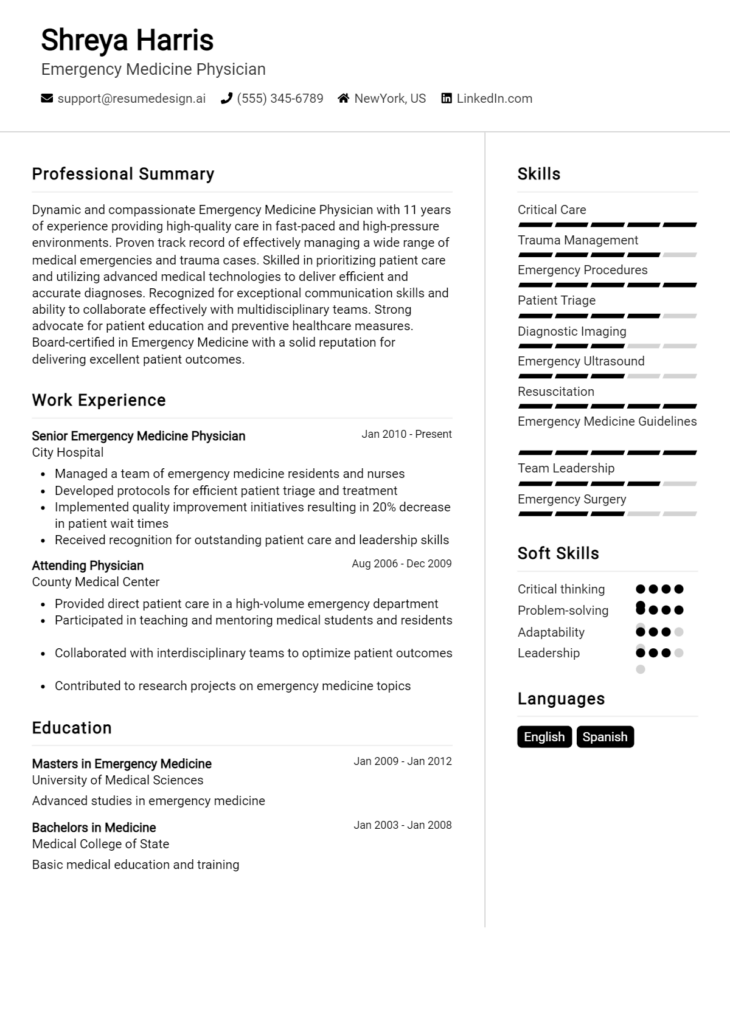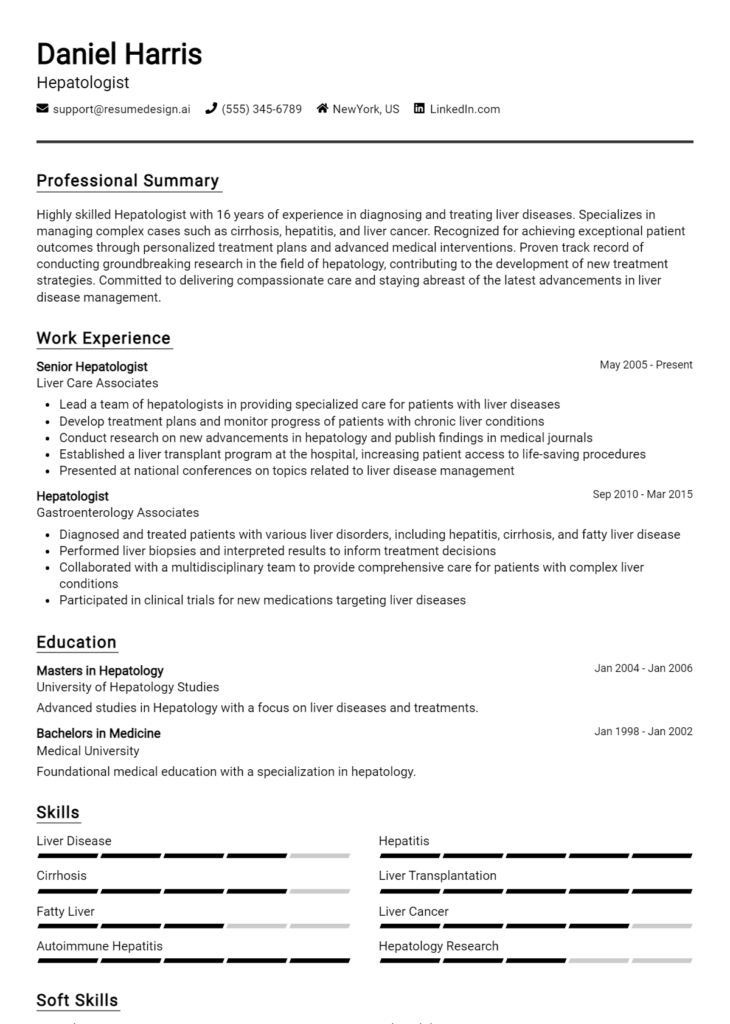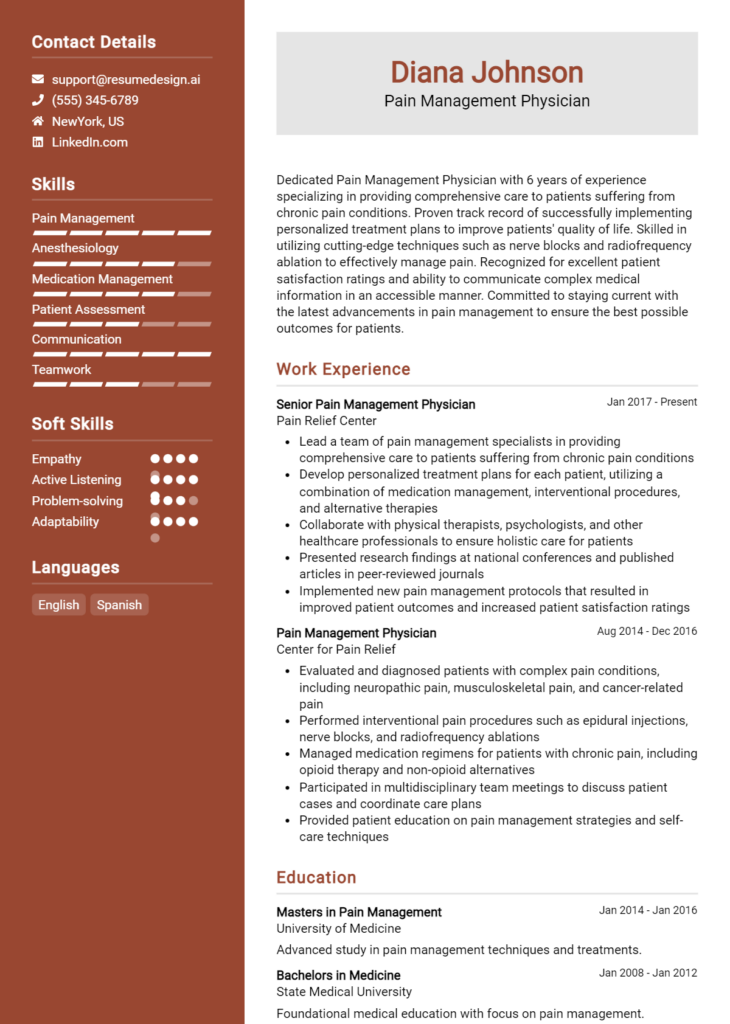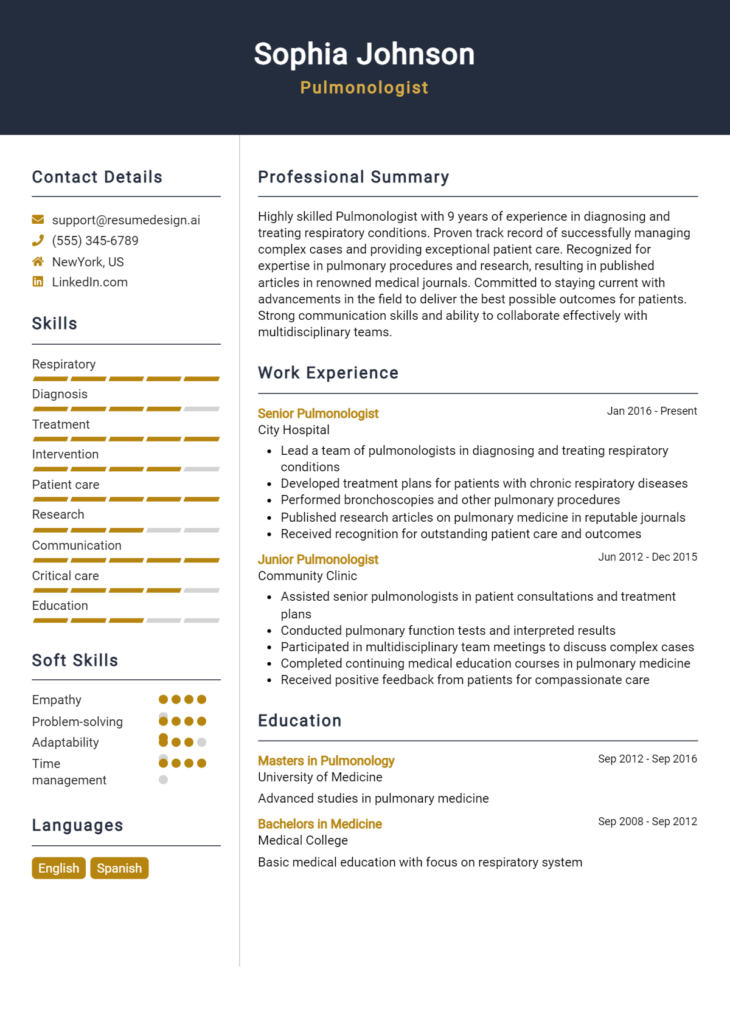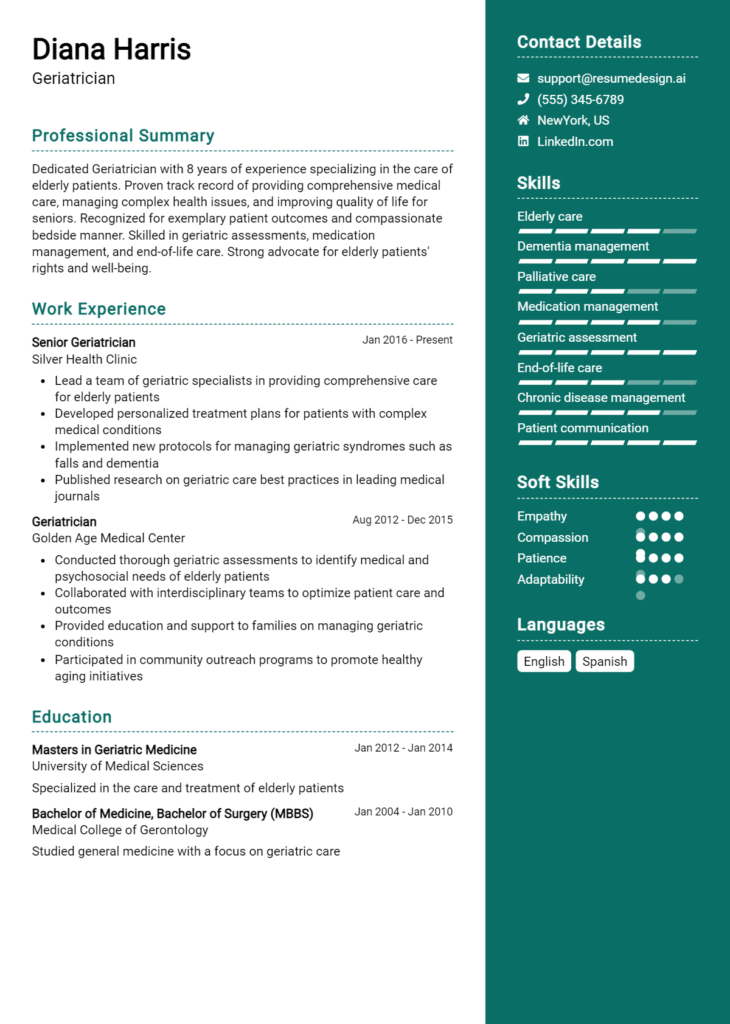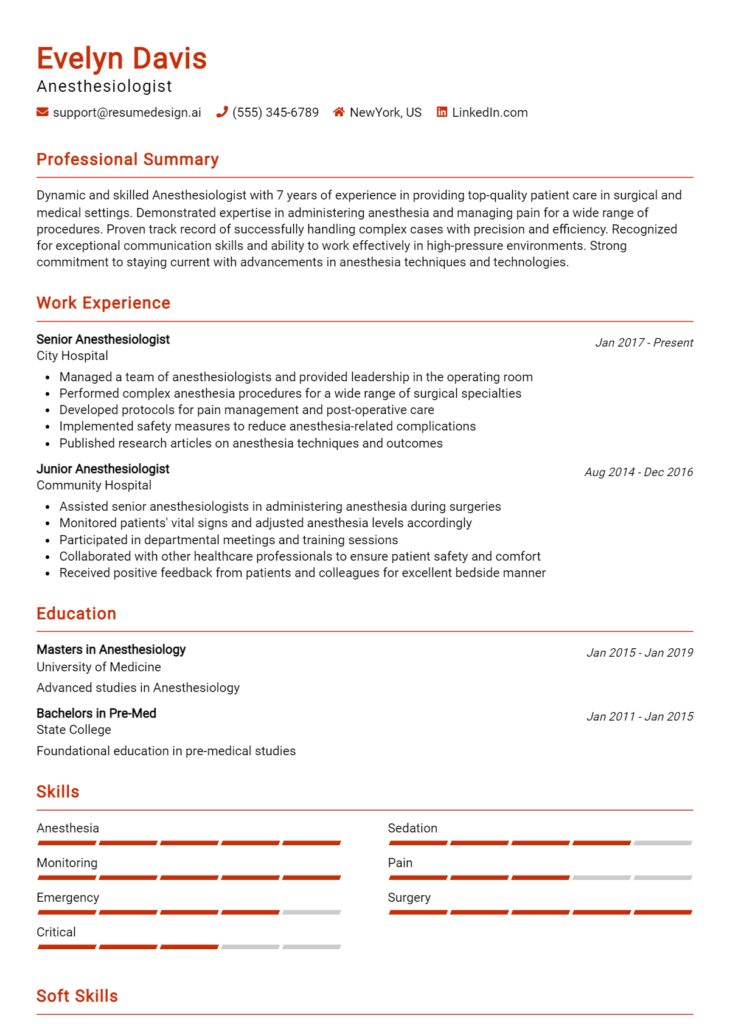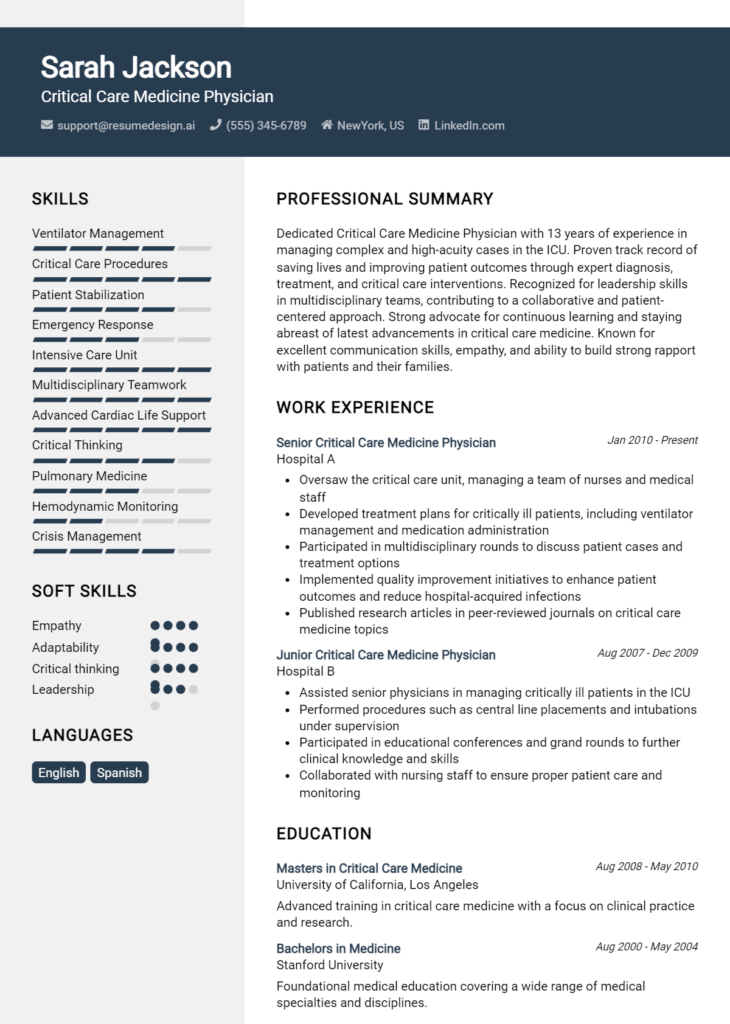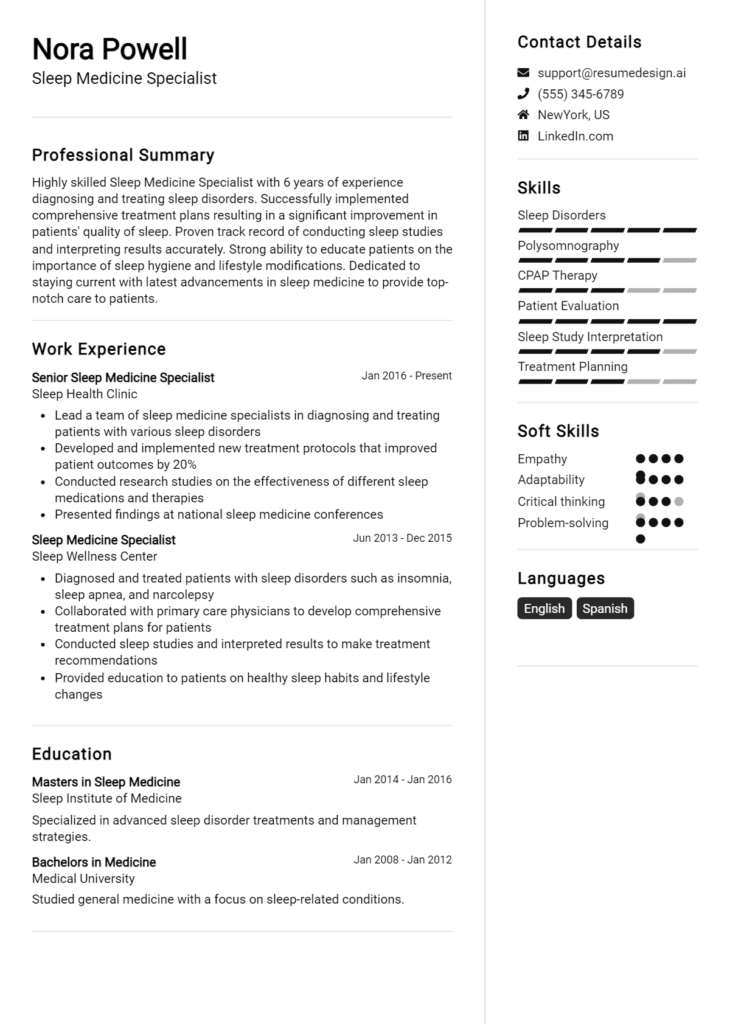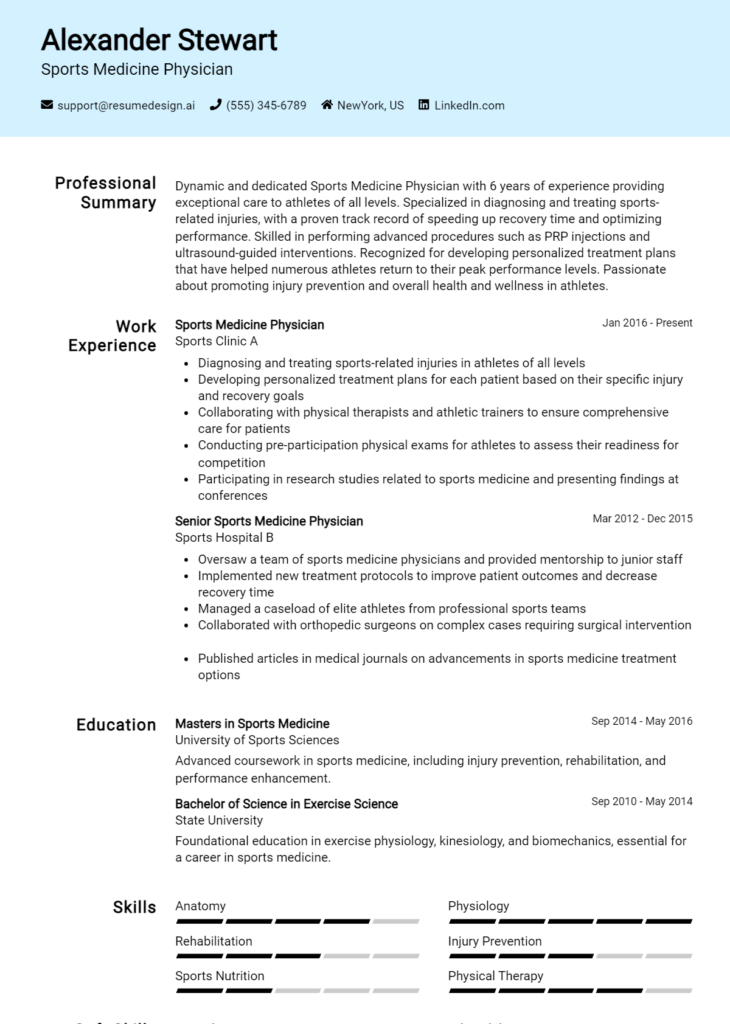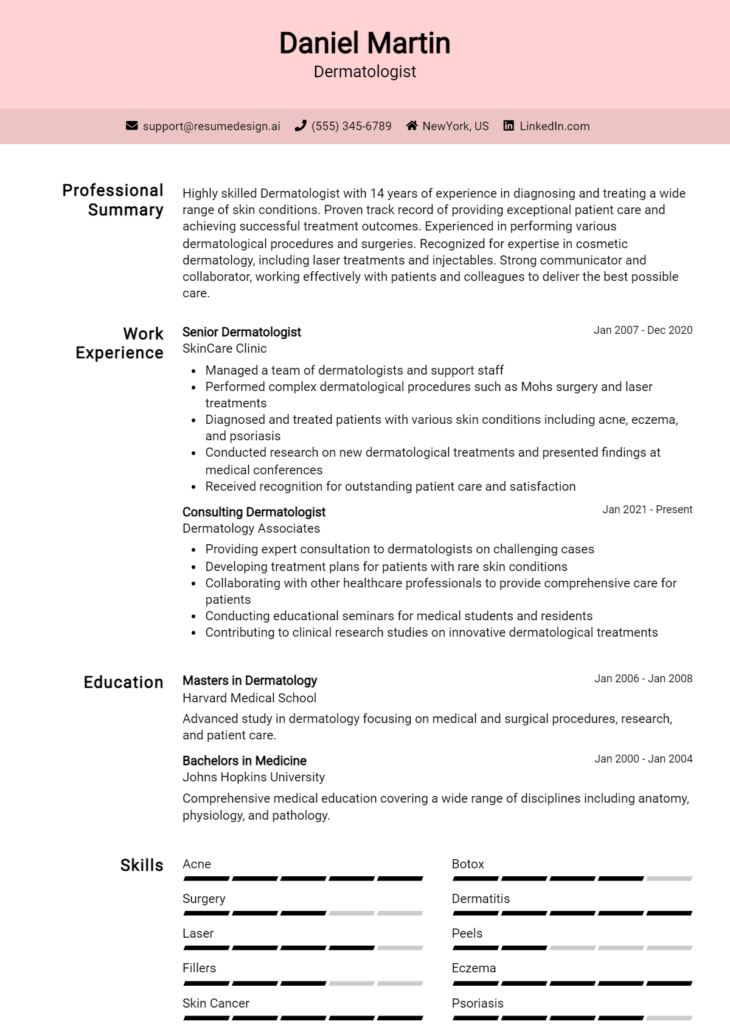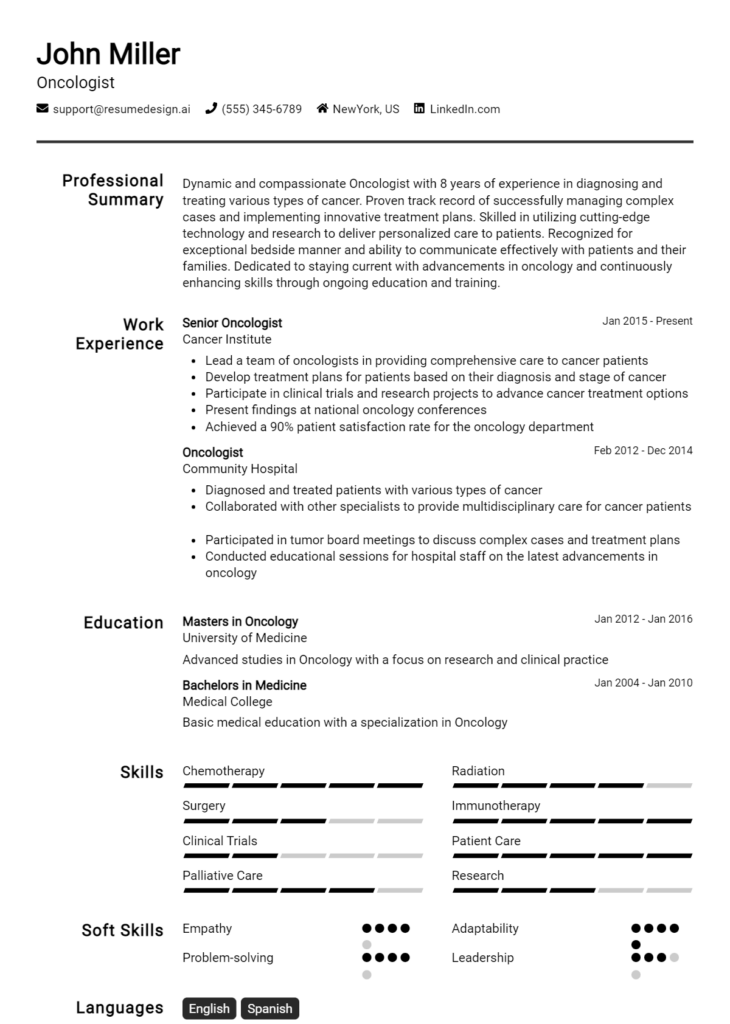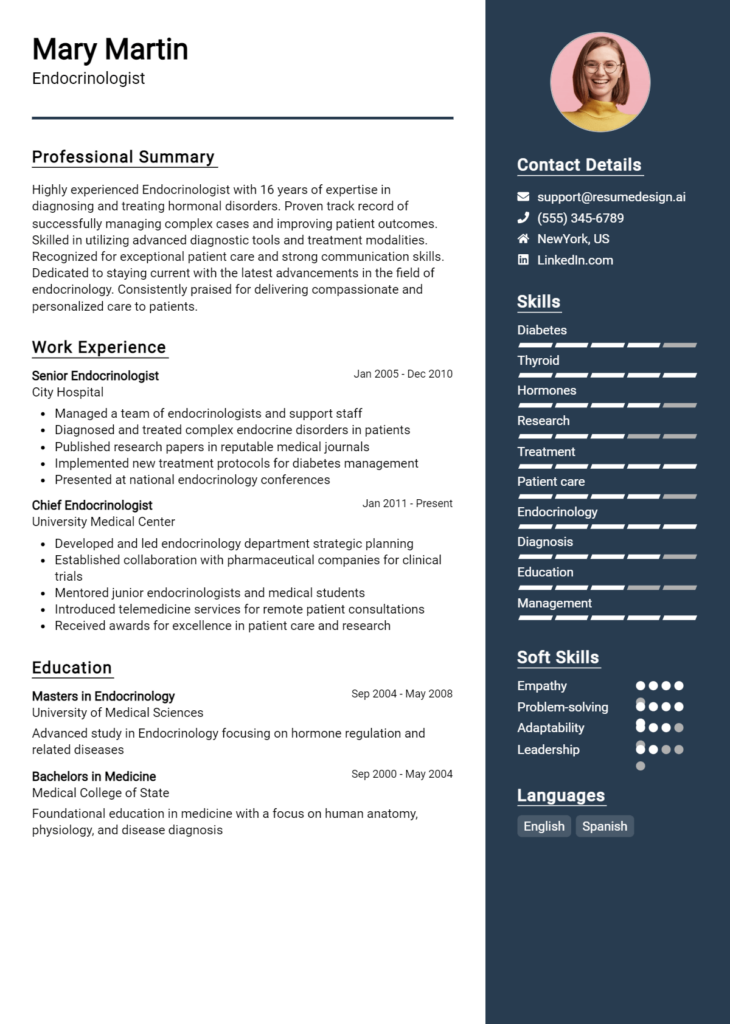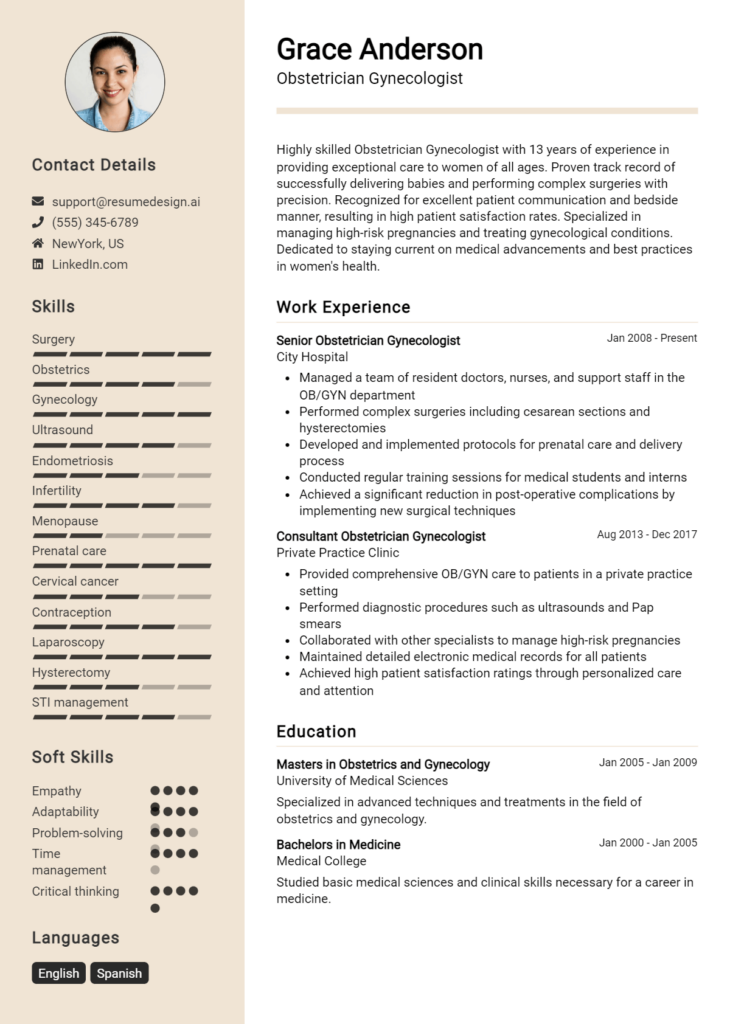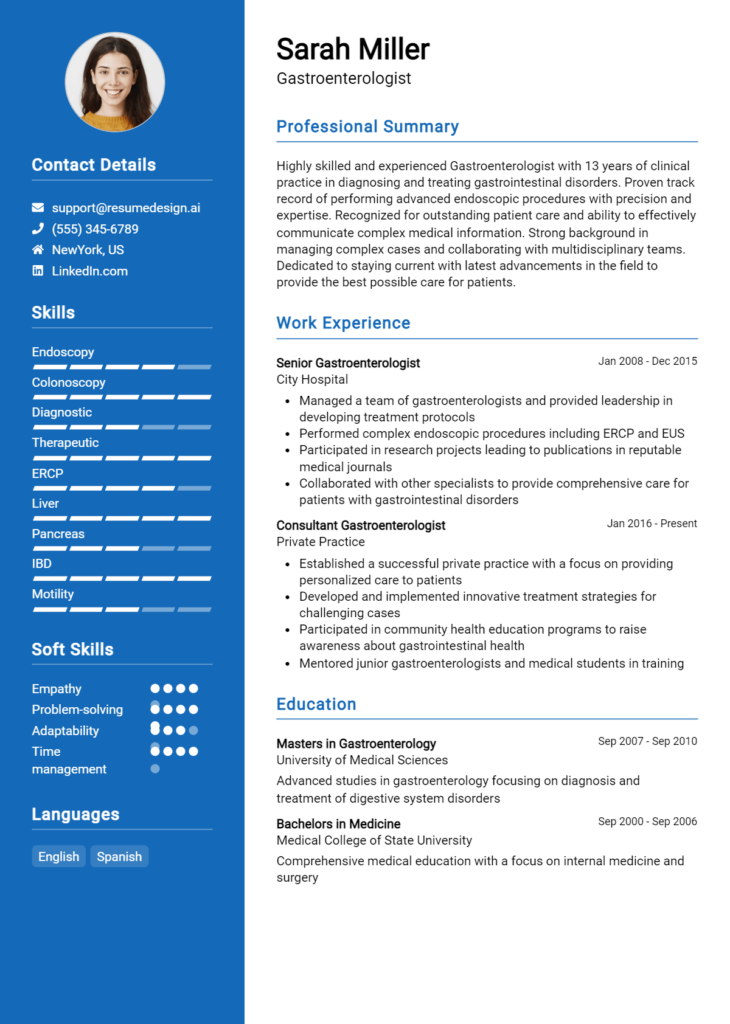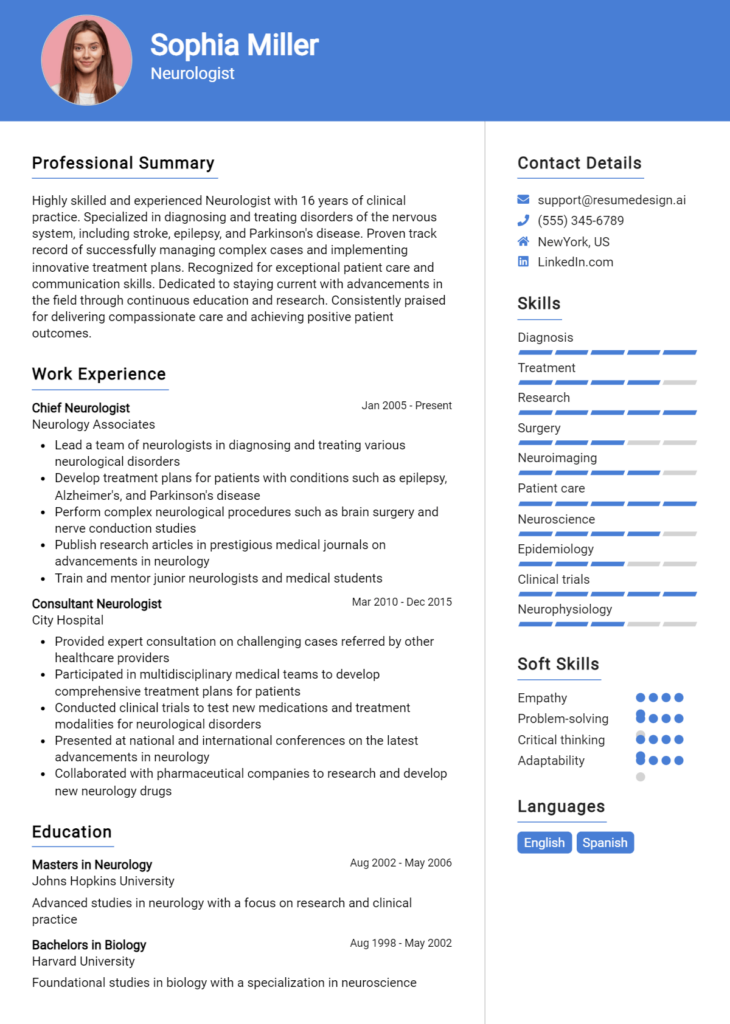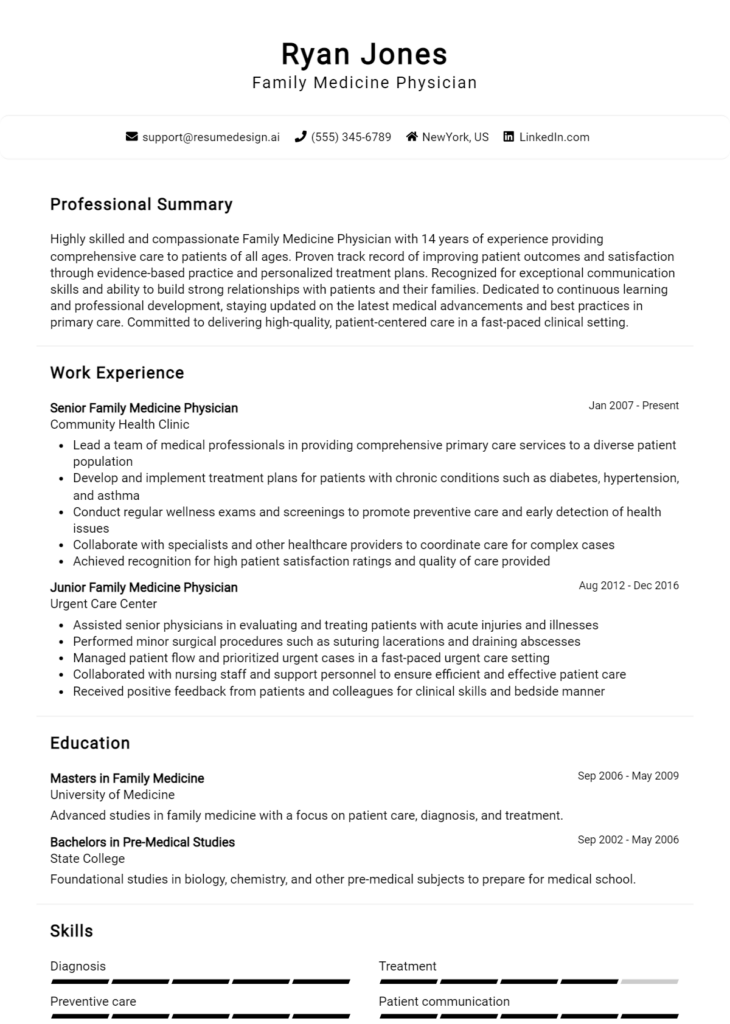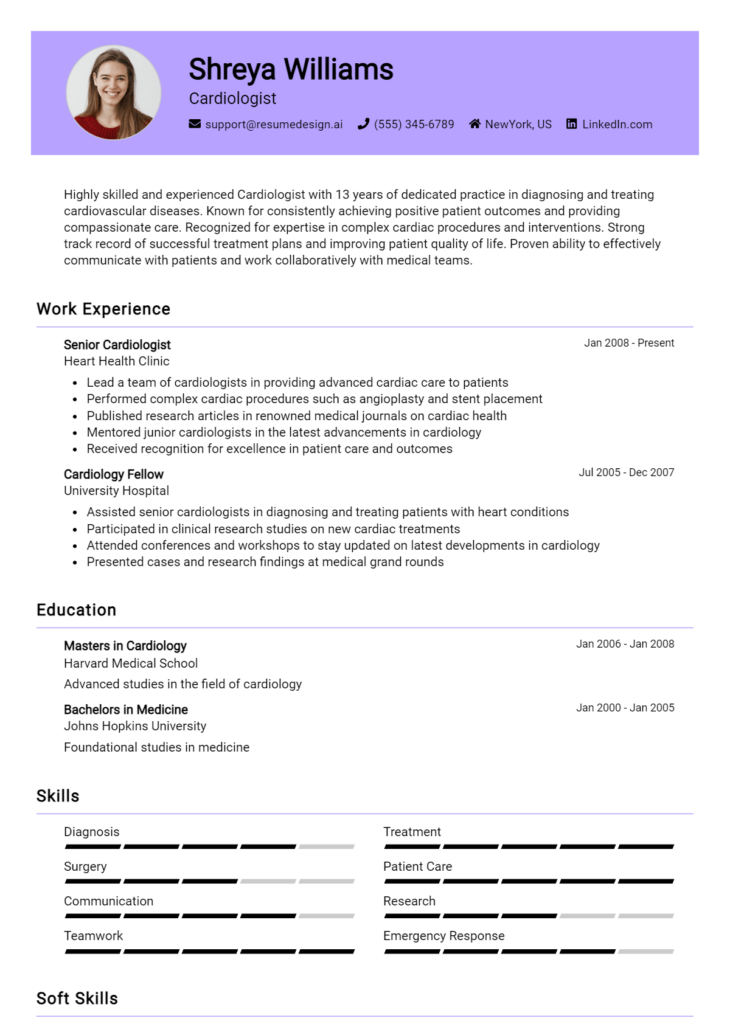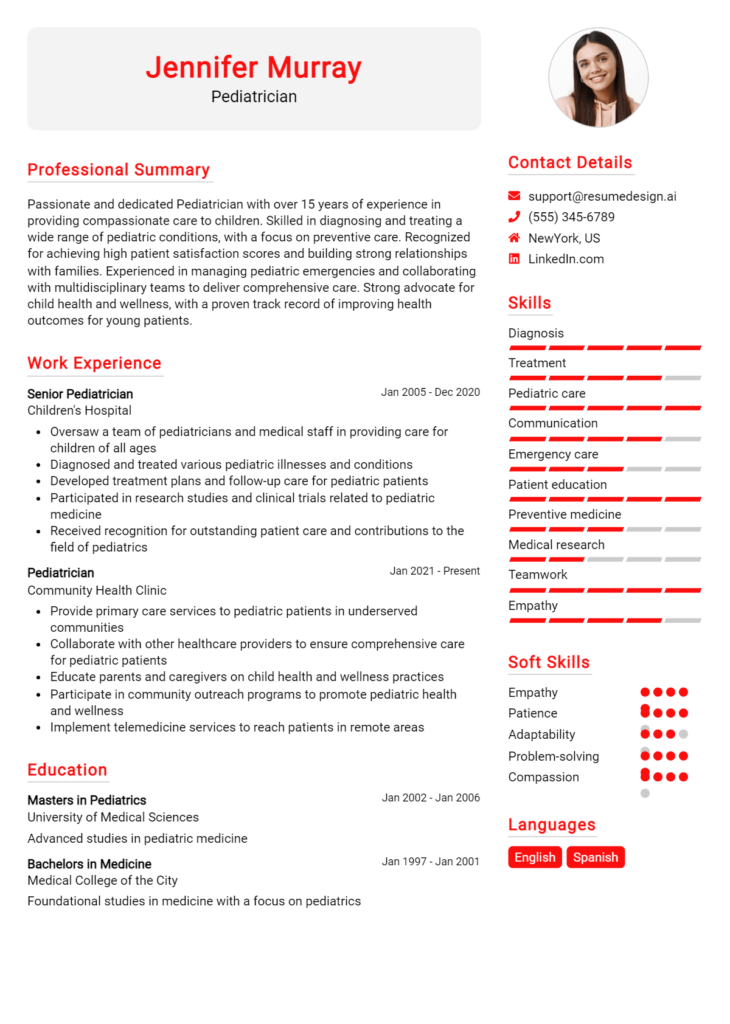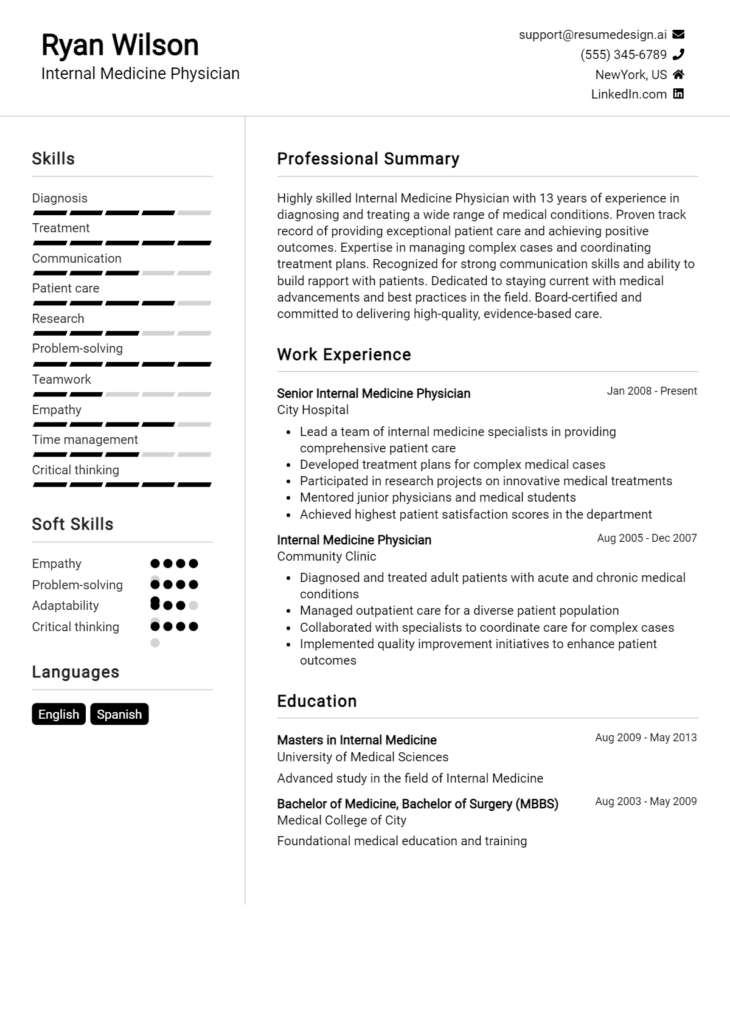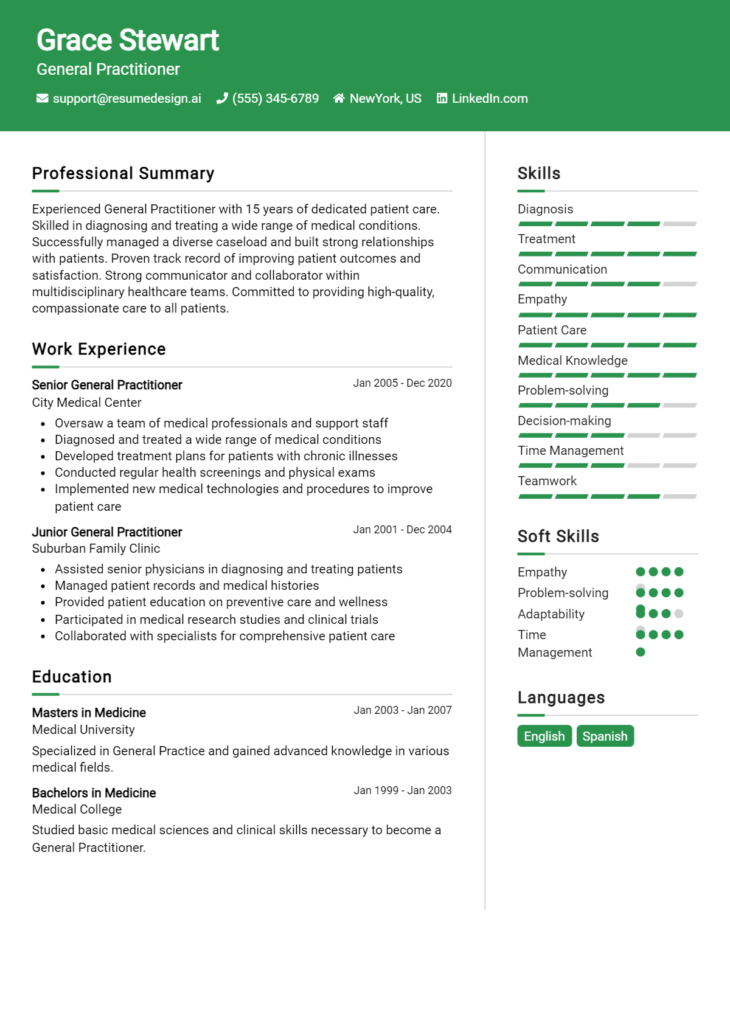Ophthalmologist Core Responsibilities
Ophthalmologists play a critical role in healthcare by diagnosing and treating eye diseases, performing surgeries, and prescribing corrective lenses. Their responsibilities bridge various departments, requiring strong technical skills in ocular examinations, operational abilities for managing patient care, and problem-solving skills for complex cases. These core competencies are vital in achieving the organization’s overall goals of enhancing patient outcomes and ensuring efficient service delivery. A well-structured resume can effectively highlight these essential qualifications, showcasing a candidate's readiness for the role.
Common Responsibilities Listed on Ophthalmologist Resume
- Conduct comprehensive eye examinations and assessments.
- Diagnose and treat a variety of eye conditions and diseases.
- Perform ocular surgeries, including cataract and laser procedures.
- Prescribe corrective lenses and medications.
- Collaborate with other healthcare professionals for integrated patient care.
- Educate patients about eye health and preventive measures.
- Maintain detailed patient records and documentation.
- Stay updated on the latest advancements in ophthalmology.
- Participate in clinical research and trials.
- Manage and oversee ophthalmic staff and office operations.
- Provide emergency eye care and respond to urgent cases.
High-Level Resume Tips for Ophthalmologist Professionals
In the competitive field of ophthalmology, a well-crafted resume is crucial for standing out among a sea of qualified candidates. Your resume is often the first impression you make on a potential employer, serving as your personal marketing tool. It needs to effectively reflect not only your clinical skills and educational background, but also your notable achievements in the field. A strong resume can set the tone for an interview and highlight your commitment to delivering exceptional patient care. This guide will provide practical and actionable resume tips specifically tailored for ophthalmologist professionals, helping you to showcase your strengths and expertise to prospective employers.
Top Resume Tips for Ophthalmologist Professionals
- Tailor your resume to the specific job description, using keywords and phrases that align with the role.
- Highlight relevant experience by detailing your roles in previous ophthalmology positions, including responsibilities and impact.
- Quantify achievements where possible; for instance, mention the number of surgeries performed or patient satisfaction ratings.
- Include industry-specific skills such as proficiency in diagnostic equipment and surgical techniques relevant to ophthalmology.
- Showcase any additional certifications, fellowships, or specialized training that enhance your qualifications.
- Utilize a clear, professional format that enhances readability and draws attention to key information.
- Incorporate a brief summary statement at the top that encapsulates your professional identity and career goals.
- List professional affiliations and memberships in ophthalmological societies to demonstrate your commitment to ongoing education and community engagement.
- Use action verbs and concise language to convey your accomplishments and contributions effectively.
By implementing these tips, you can significantly increase your chances of landing a job in the ophthalmologist field. A well-structured resume that showcases your qualifications and achievements not only helps you stand out to hiring managers but also communicates your passion for the profession. With the right approach, your resume can open doors to exciting opportunities in your career.
Why Resume Headlines & Titles are Important for Ophthalmologist
In the competitive field of ophthalmology, having an impactful resume headline or title is crucial for capturing the attention of hiring managers. A strong headline serves as a powerful first impression, encapsulating a candidate's key qualifications and unique strengths in a concise and relevant manner. It not only helps the applicant stand out in a sea of resumes but also provides a snapshot of their expertise, directly related to the specific job being applied for. By summarizing critical skills and experience in just a few words, the right headline can compel hiring managers to delve deeper into the resume, ultimately enhancing the candidate's chances of securing an interview.
Best Practices for Crafting Resume Headlines for Ophthalmologist
- Keep it concise: Aim for a headline that is no longer than a single line.
- Be role-specific: Tailor the headline to reflect the ophthalmologist position you are applying for.
- Highlight key strengths: Focus on your most relevant skills and accomplishments.
- Use impactful language: Choose powerful words that evoke confidence and expertise.
- Avoid jargon: Ensure the language is clear and accessible to all hiring managers.
- Include certifications or specialties: If applicable, mention any relevant qualifications or areas of expertise.
- Make it attention-grabbing: Use dynamic phrasing that piques interest immediately.
- Align with job description: Incorporate keywords from the job posting to align your headline with the employer's needs.
Example Resume Headlines for Ophthalmologist
Strong Resume Headlines
Board-Certified Ophthalmologist with 10+ Years of Experience in Cataract Surgery
Dedicated Pediatric Ophthalmologist Specializing in Vision Therapy and Eye Care
Experienced Retina Specialist with Proven Track Record in Advanced Surgical Techniques
Compassionate Ophthalmologist Committed to Enhancing Patient Vision and Quality of Life
Weak Resume Headlines
Ophthalmologist Looking for New Opportunities
Eye Doctor with Some Experience
Strong headlines are effective because they succinctly convey the candidate's primary qualifications and areas of expertise while immediately capturing the reader's interest. They provide a clear indication of what the applicant brings to the table, making it easy for hiring managers to see the alignment with their needs. In contrast, weak headlines tend to lack specificity and impact, failing to differentiate the candidate from others. Generic phrases like "Looking for New Opportunities" do not highlight the individual's unique strengths, making it easy for their application to be overlooked in favor of more compelling contenders.
Writing an Exceptional Ophthalmologist Resume Summary
In the highly specialized field of ophthalmology, a well-crafted resume summary is crucial for standing out in a competitive job market. This brief introductory paragraph serves as a snapshot of your professional identity, quickly capturing the attention of hiring managers by highlighting your key skills, relevant experience, and notable accomplishments. A strong summary should be concise yet impactful, providing a tailored overview that aligns with the specific requirements of the position you are applying for. By effectively summarizing your qualifications, you can engage potential employers and encourage them to delve further into your resume.
Best Practices for Writing an Ophthalmologist Resume Summary
- Quantify Achievements: Use numbers and statistics to demonstrate your impact, such as patient success rates or surgical outcomes.
- Focus on Skills: Highlight specific skills that are relevant to the role, such as advanced surgical techniques or proficiency in diagnostic equipment.
- Tailor the Summary: Customize your summary for each application by incorporating keywords and phrases from the job description.
- Keep it Concise: Aim for 3-5 sentences that succinctly convey your qualifications without overwhelming the reader.
- Showcase Accomplishments: Mention any awards, recognitions, or significant contributions to the field that set you apart.
- Use Active Language: Employ strong action verbs to convey your expertise and achievements dynamically.
- Emphasize Patient Care: Highlight your commitment to patient welfare and any patient-centered initiatives you have led.
- Avoid Jargon: Use clear and accessible language to ensure your summary resonates with a broader audience, including HR professionals.
Example Ophthalmologist Resume Summaries
Strong Resume Summaries
Dedicated ophthalmologist with over 10 years of experience in cataract and refractive surgery, achieving a 95% patient satisfaction rate. Successfully performed over 3,000 surgeries with a complication rate below 1%.
Results-driven ophthalmologist skilled in utilizing advanced diagnostic technologies, including OCT and visual field testing, leading to a 30% improvement in early glaucoma detection rates among patients.
Compassionate eye care professional with a proven track record in managing complex cases, including retinal detachment, and leading a team that increased outpatient visits by 40% through innovative patient engagement strategies.
Weak Resume Summaries
Ophthalmologist with experience in eye care looking for a new opportunity.
Dedicated to helping patients with their eye problems and committed to quality care.
The examples of strong resume summaries are effective because they provide specific, quantifiable results and relevant skills that directly align with the expectations of the ophthalmologist role. They showcase the candidate’s expertise and achievements in a way that is both engaging and informative. In contrast, the weak summaries lack detail and specificity, making them too generic and unmemorable, failing to effectively communicate the candidates' true value to potential employers.
Work Experience Section for Ophthalmologist Resume
The work experience section of an Ophthalmologist resume is critical in illustrating the depth of a candidate's expertise and their practical contributions to the field. This section not only highlights the technical skills acquired through hands-on practice but also demonstrates the ability to manage teams effectively and deliver high-quality patient care. By quantifying achievements, such as successful surgical outcomes or improvements in patient satisfaction, candidates can showcase their impact in measurable terms. Aligning this experience with industry standards is essential to ensure relevance and competitiveness in the job market.
Best Practices for Ophthalmologist Work Experience
- Clearly outline technical skills relevant to ophthalmology, such as surgical techniques, diagnostic tools, and patient management systems.
- Quantify achievements, for example, by detailing the percentage of successful surgeries or improvements in patient recovery times.
- Include specific examples of collaboration with other healthcare professionals, emphasizing teamwork in multidisciplinary settings.
- Highlight any leadership roles taken, such as leading a surgical team or training medical residents.
- Use action verbs to describe responsibilities and accomplishments, ensuring clarity and impact.
- Tailor experiences to align with the job description, focusing on skills and achievements that match the employer’s needs.
- Incorporate awards, recognitions, or certifications that validate expertise and commitment to the field.
- Maintain a clear and concise format, making it easy for hiring managers to quickly assess qualifications.
Example Work Experiences for Ophthalmologist
Strong Experiences
- Performed over 500 cataract surgeries with a 98% success rate, significantly reducing post-operative complications.
- Led a team of 10 healthcare professionals in a multi-disciplinary clinic, improving patient throughput by 30% through enhanced workflow processes.
- Implemented a new patient management system that decreased appointment scheduling errors by 40%, resulting in improved patient satisfaction scores.
- Conducted training sessions for resident doctors, which improved their surgical skills and patient management techniques, as reflected in their performance evaluations.
Weak Experiences
- Assisted in surgeries and other medical procedures.
- Worked in a clinic with various patients.
- Participated in team meetings occasionally.
- Handled patient care and follow-ups as needed.
The examples categorized as strong experiences demonstrate clear, quantifiable outcomes and specific technical leadership, showcasing the candidate's direct impact on patient care and operational efficiency. In contrast, the weak experiences lack detail and specificity, failing to convey the candidate's skills and contributions meaningfully. They do not provide measurable results or highlight unique responsibilities, making them less compelling to potential employers.
Education and Certifications Section for Ophthalmologist Resume
The education and certifications section is a crucial component of an Ophthalmologist's resume, as it serves to showcase the candidate's academic achievements, relevant certifications, and commitment to ongoing professional development. This section not only highlights the foundational knowledge acquired through medical school and residency training but also emphasizes any specialized training or certifications that enhance the candidate's expertise in specific areas of ophthalmology. By including pertinent coursework, certifications, and evidence of continuous learning, candidates can significantly bolster their credibility and demonstrate their alignment with the demands of the job role.
Best Practices for Ophthalmologist Education and Certifications
- Prioritize relevance by including degrees and certifications directly related to ophthalmology.
- Detail your educational background, including the institution, degree earned, and graduation year.
- List industry-recognized certifications, such as the American Board of Ophthalmology certification.
- Include specialized training or fellowships that demonstrate advanced expertise in subspecialties.
- Highlight any relevant coursework that showcases knowledge in specific areas of ophthalmic care.
- Use clear and concise formatting to enhance readability and organization of information.
- Consider including memberships in professional organizations related to ophthalmology.
- Keep the section updated to reflect the most current credentials and ongoing education efforts.
Example Education and Certifications for Ophthalmologist
Strong Examples
- M.D., Doctor of Medicine, Harvard Medical School, 2018
- Residency in Ophthalmology, Johns Hopkins University, 2022
- Board Certified by the American Board of Ophthalmology, 2023
- Fellowship in Vitreoretinal Surgery, Mayo Clinic, 2023
Weak Examples
- Bachelor of Arts in English Literature, University of California, 2010
- Certification in Basic Life Support (BLS), 2015 (not specialized for ophthalmology)
- Coursework in General Biology from a non-accredited institution, 2012
- Outdated certification in Ophthalmic Assisting, expired in 2020
The strong examples are considered effective because they directly relate to the field of ophthalmology, showcasing advanced medical degrees and specialized training that are highly relevant to the role. In contrast, the weak examples lack relevance to the position, either because they pertain to unrelated fields or because they represent outdated or non-specialized credentials that do not contribute to the candidate's qualifications as an ophthalmologist.
Top Skills & Keywords for Ophthalmologist Resume
As an ophthalmologist, possessing a well-rounded skill set is crucial for delivering exceptional patient care and ensuring successful outcomes in various eye-related conditions. A strong resume that highlights both hard and soft skills can significantly enhance your chances of standing out in a competitive job market. Hard skills demonstrate your technical proficiency and medical knowledge, while soft skills reflect your ability to communicate, empathize, and collaborate with patients and healthcare teams. When crafting your resume, including a balance of these skills will not only showcase your qualifications but also your dedication to the field of ophthalmology. For a more comprehensive understanding of how to effectively present your skills, consider exploring additional resources on skills and work experience.
Top Hard & Soft Skills for Ophthalmologist
Soft Skills
- Excellent communication
- Empathy and compassion
- Strong interpersonal skills
- Attention to detail
- Problem-solving abilities
- Time management
- Team collaboration
- Patient education
- Adaptability to change
- Stress management
Hard Skills
- Proficient in ophthalmic examination techniques
- Knowledge of ocular diseases and treatments
- Surgical skills (e.g., cataract surgery, LASIK)
- Familiarity with diagnostic imaging (e.g., OCT, fundus photography)
- Ability to interpret visual field tests
- Proficiency in electronic medical records (EMR) systems
- Understanding of pharmacology related to eye care
- Experience with patient assessment and diagnosis
- Competence in managing postoperative care
- Familiarity with current ophthalmology research and advancements
Stand Out with a Winning Ophthalmologist Cover Letter
Dear [Hiring Manager's Name],
I am writing to express my interest in the Ophthalmologist position at [Clinic/Hospital Name], as advertised on [Job Board/Company Website]. With a comprehensive background in diagnosing and treating a wide range of ocular conditions, alongside my commitment to patient-centered care, I am excited about the opportunity to contribute to your esteemed practice. My extensive training, coupled with my experience in both clinical and surgical settings, has equipped me with the skills necessary to provide high-quality eye care and improve patient outcomes.
Throughout my career, I have successfully managed various ocular diseases, ranging from common refractive errors to complex retinal disorders. My fellowship training in [specific subspecialty, if applicable] has further honed my ability to perform intricate surgical procedures, including cataract surgery and laser treatments. I pride myself on my ability to build strong relationships with patients, ensuring they feel comfortable and informed about their treatment options. My dedication to continuous learning and staying abreast of the latest advancements in ophthalmology allows me to implement innovative practices that enhance patient care.
I am particularly drawn to the mission and values of [Clinic/Hospital Name], which prioritize not only clinical excellence but also community outreach and education. I am eager to bring my expertise to your team and collaborate with fellow healthcare professionals to expand access to eye care services in the community. I am confident that my passion for ophthalmology and dedication to patient advocacy will make a significant contribution to your facility.
Thank you for considering my application. I look forward to the opportunity to discuss how my skills and experiences align with the needs of your practice. I am excited about the possibility of joining [Clinic/Hospital Name] and contributing to the health and well-being of our patients.
Sincerely,
[Your Name]
[Your Contact Information]
Common Mistakes to Avoid in a Ophthalmologist Resume
When applying for a position as an ophthalmologist, crafting a compelling resume is essential for making a positive impression. Unfortunately, many candidates make common mistakes that can undermine their qualifications or fail to highlight their expertise effectively. Understanding these pitfalls can help you create a standout resume that showcases your skills and experience in the best light. Here are some common mistakes to avoid:
Overloading with Medical Jargon: While it's important to demonstrate your medical knowledge, using excessive technical terms can alienate hiring managers who may not be familiar with them. Aim for a balance that reflects your expertise without overwhelming the reader.
Neglecting to Tailor the Resume: Failing to customize your resume for each job application can lead to missed opportunities. Highlight relevant experience and skills that align with the specific requirements of the position.
Including Irrelevant Experience: Listing every job you've ever held can clutter your resume and distract from your most pertinent qualifications. Focus on experiences that are directly related to ophthalmology or that demonstrate transferable skills.
Poor Formatting and Organization: A cluttered or unprofessional layout can make it difficult for hiring managers to read your resume. Use clear headings, bullet points, and consistent formatting to enhance readability.
Omitting Key Certifications and Licenses: As an ophthalmologist, certain certifications and licenses are crucial. Ensure that these credentials are prominently displayed, as they validate your qualifications and expertise in the field.
Using a Generic Objective Statement: A cookie-cutter objective statement provides little value to your resume. Instead, craft a specific summary that reflects your career goals and what you can offer to the prospective employer.
Failing to Highlight Soft Skills: While technical skills are critical, soft skills such as communication, empathy, and teamwork are equally important in patient care. Be sure to include examples that showcase these qualities.
Neglecting to Proofread: Spelling and grammatical errors can detract from your professionalism and attention to detail. Always proofread your resume multiple times and consider having someone else review it for clarity and accuracy.
Conclusion
As an ophthalmologist, your expertise in diagnosing and treating eye conditions is essential for improving patients' quality of life. In this article, we explored the critical skills and qualifications necessary for success in this field, including a strong foundation in medical knowledge, surgical proficiency, and effective communication skills with patients and colleagues. We also highlighted the importance of staying updated with the latest advancements in ophthalmology and engaging in continuous education.
To ensure that you stand out in the competitive job market as an ophthalmologist, it's crucial to have a well-crafted resume that showcases your skills, experiences, and achievements effectively. A polished resume can significantly increase your chances of landing your desired position.
Now is the perfect time to review and enhance your ophthalmologist resume. Consider utilizing valuable resources such as resume templates, which can help guide your resume format and structure. You can also explore the resume builder for an easy and efficient way to create a professional resume tailored to your experience. Additionally, reviewing resume examples can provide inspiration and insights into how to best present your qualifications. Don’t forget to complement your resume with a strong application by using cover letter templates that effectively communicate your passion for the field.
Take action today and make sure your resume reflects the exceptional ophthalmologist you are!

